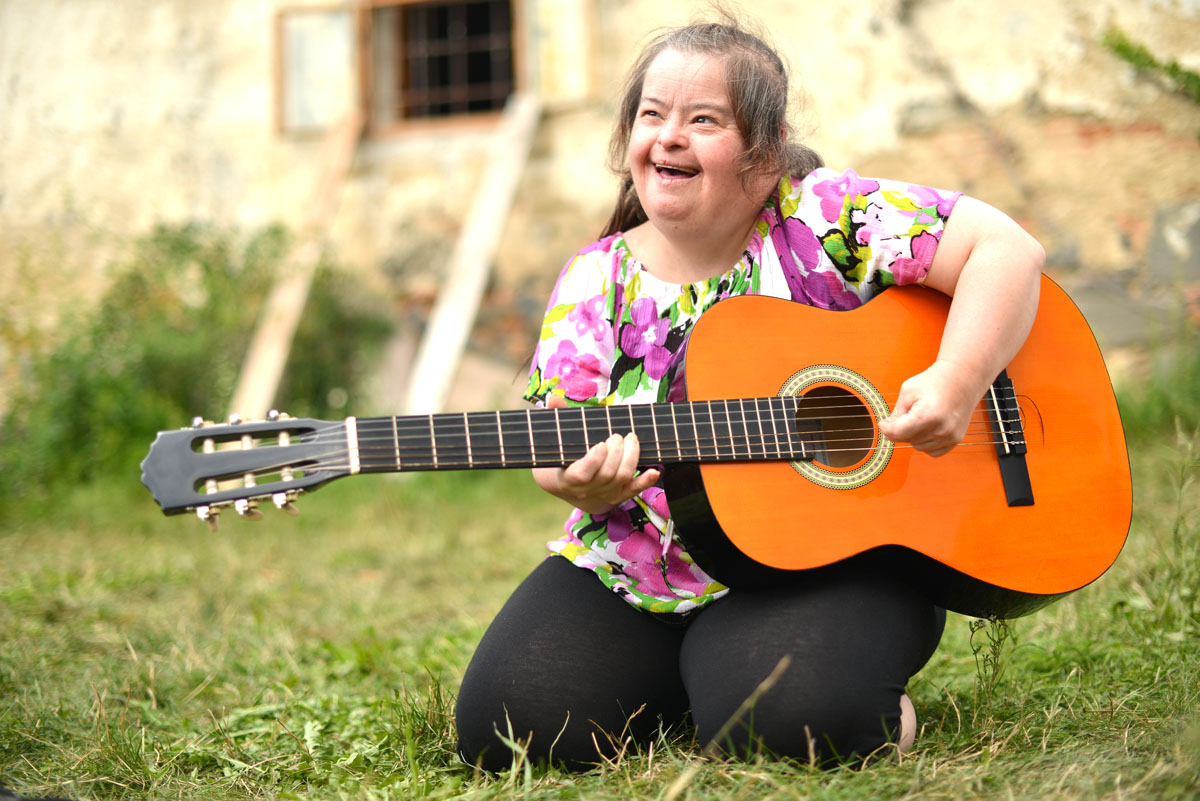Documents authored by Abilities Manitoba are available in alternative formats. For other shared documents and resources, please contact the original author. If you require any assistance please contact us and we will do our best to accommodate you.
You can contact us at admin@abilitiesmanitoba.org or 431-688-6108.
History
History of Abilities Manitoba

Abilities Manitoba began in 1980 as two separate coalitions, the Winnipeg Coalition of Residential Service Providers and the Manitoba Coalition of Residential Service Providers.
The Manitoba Coalition membership was made up of residential services providers from rural Manitoba as well as Winnipeg. The Manitoba Coalition was formed for the purpose of sharing and discussing matters of mutual concern and communicating those concerns to the provincial government and the general public.
The Winnipeg Coalition of Residential Services Providers was a similar association of organizations located in the City of Winnipeg who joined together to promote community living for people living with an intellectual disability, to improve the quality of residential services provided in Winnipeg, to share concerns ideas and resources and to represent the needs of people living with an intellectual disability and of residential service providers to government and voluntary agencies.
In 1988 the Winnipeg and Manitoba coalitions joined forces to become one coalition, the Manitoba Coalition of Residential Service Providers.
In 1990 it was decided that the coalition would offer more global representation, to both residential, day and employment services, so the word residential was deleted from the name and it became the Manitoba Coalition of Service Providers.
In 2009 the Manitoba Coalition of Service Providers became Abilities Manitoba.
The Inclusion Movement in Manitoba

It is important to understand the past to move to a positive future that’s consistent with the hopes and expectations of individuals’ and families dependent on support. The past contains many lessons about the kind of supports that lead to a life marked by meaningful relationships, participation in the community, and the opportunity for choice and control versus the kind of supports that leave individuals lonely, alienated from their community, and powerless. What follows is a historical perspective to assist us in creating the kind and quality of supports that offer individuals the opportunity to lead a full and flourishing life in the community.
Relatively speaking, the history of Community Living in Manitoba is brief. This movement began about 60 years ago and has been largely lead and directed by incredible family advocacy. Many community agencies were formed thanks to the dedication and hard work of the families of Manitobans with intellectual disabilities. Families continue to play a strong and pertinent role on the Board of Directors of the 100 plus community agencies across our province. More importantly, they continue to advocate for their family member and all other similar families across Manitoba.

From the late 1800s to the 1970s people were placed in large institutions long term – often for their whole life. Based on four service design principles; segregation, congregation, professional dominance, and social isolation, institutions have a long history in our province and continue to operate today. At its height, Manitoba operated three large institutions, Manitoba Developmental Centre in Portage la Prairie, Pelican Lake Training Centre in Ninette and St. Amant in Winnipeg. Those not living in institutions remained at home, were boarded out, placed in foster care or lived in large congregate farm settings. In 1976, 85% of the funding for people with intellectual disabilities was dedicated to institutions. We continue to see two institutions operating today. Manitoba Developmental Centre has no plans for closure and St. Amant is in the midst of moving 75 people over a five year period and is highly committed to changing the model of services they offer. Manitoba is the last province in Canada without a plan to close the remaining institutions. All other provinces have closed, or are in the process of closing institutions. Some have gone through class action law suits, paid settlements and issued formal apologies.
In 2018, David Weremy filed a class action law suit on behalf of all persons who resided at MDC between July 1, 1951 and May 29, 2020, and were alive as of October 31, 2016. The plaintiff alleges that members of the class were physically, sexually and psychologically abused at MDC. It is alleged that the Province of Manitoba breached its fiduciary and common law duties to the class through the establishment, operation, and supervision of MDC. In particular, it is alleged that the MDC failed to care for and protect class members, which resulted in loss or injury, including psychological trauma, pain and suffering and loss of enjoyment of life. The latest updates on the MDC case can be read here.
Historically, individuals with an intellectual disability have been socially devalued. The evolution of language to identify them reflects this as the following list demonstrates; feeble-minded, idiot, moron, imbecile, mental defective, and mental retardate. It was not until the early 1980s in Canada that the imperfect but more respectful label of intellectual disability began to replace the term mental retardation. This label in conjunction with the advent of person-first language began to reflect a change in how individuals with an intellectual disability were perceived in society.
A key component in the shift away from the dominance of the institutional model was emergence of the parent movement in the 1950s. The parent movement was led by small groups of family members who wanted to see options other than placement in an institution for their children. The movement formalized into a national organization called the Canadian Association for the Mentally Retarded (CAMR) with a national headquarters in Ontario and branches across Canada. CAMR is now known as Inclusion Canada. Manitoba’s branch of CAMR (now called Community Living Manitoba) opened in 1953 under the name ARC (Association for Retarded Children). ARC started schools and preschools in many locations across Manitoba. In 1966, the right to attend public schools for persons with intellectual disabilities was achieved. People in Manitoba began to attend public schools in segregated classrooms beginning more regularly in the 1970’s. Classrooms slowly grew their level of inclusion in this era and children started attending classes with their peers with greater regularity in the early 1990’s. While segregated classrooms continue to exist there is now a societal expectation of inclusion.

It was not until the mid-1970s that the community-based services funded by government evolved as a real alternative to institutionalization. Non-profit organizations with voluntary Boards of Directors began to appear – comprised mostly of family members. In Winnipeg the first day and residential agencies were ARC Industries (now ImagineAbility) and Winnserv. Rurally, the first services were developed in Boissevain, Swan River, Flin Flon, Beausejour, Steinbach, and Portage la Prairie. Many of these early community agencies are members of Abilities Manitoba today. The services were funded mainly by donations and grants and often involved parents in staff roles. These early services were developed to support individuals and families and also to demonstrate the model of community-based supports. The dedicated work of these early pioneers coupled with the emergence of the human rights movement, the shift in the perception of individuals with an intellectual disability, and shifts in public policy in the late 1960s and 1970s led to eventual displacement of the institutional model as the appropriate and dominant way to support individuals. Community based services at that time were large, supporting 10-12 people in a living situation. Sheltered workshops were the primary day time option in addition to Life Skills Programs. The concepts of Normalization and integration were the main philosophies of the era.
The Welcome Home Program represented the largest movement of people from institutional care into many Manitoba communities and occurred from 1982-86. Under this initiative, 220 people moved from the Manitoba Developmental Centre and about the same number from family homes moved to community living situations. This marked a significant shift, as the norm shifted to moving from their family homes into community homes rather than to institutions.
Society’s perceptions slowly began to change as a result of new models of support, family advocacy and the presence of people with intellectual disabilities in communities. Greater and more diverse models of support began to emerge in the 1980s and the concept of community membership arrived. This represented a significant change in thinking from merely being in the community to becoming a part of the community. This movement asked communities to find a place for all citizens and to welcome diversity. Residential services began to support fewer people in group homes (4-6) and supported independent living arrangements developed. These smaller living situations were better tailored to meet the needs and desires of people living there. People rarely, if ever had an opportunity to choose their roommates or location. Day time options evolved to include a wider array of choices and program options. During the early 1980s supported employment agencies began to open, offering the first opportunities for community-based, meaningful employment.
In the 1990s services continued to develop and evolve, with greater choice available to people. The concept of full citizenship was introduced and in 1996 The Adults Living with an Intellectual Disability Act (ALIDA) - formerly known as the Vulnerable Person's Act - was passed. It recognizes people’s rights to choice and assumes capacity for decision making. The legislation promotes five guiding principles requiring a significant societal paradigm shift that still continues today.

The new millennium has focused on choice, inclusion and person-centred supports. It has also brought the United Nations Convention on the Rights of People with Disabilities. This means that more and more, people have greater opportunity to direct their own lives. The values and philosophies of meaningful participation, self-direction, choice, respect and individuality are forefront in many services being offered today. Services operate from an asset-based perspective and seek opportunities to provide truly person-centred supports. The societal paradigm shift continues while individuals and their families expect and want new and innovative options available to them that promote true and full citizenship. Many services are evolving to meet these expectations. When real self-determination partners with community opportunities, relationships and commitment, the context for true citizenship emerges.
Abilities Manitoba is made up of some organizations started in the 1960s right through to newer agencies started in the 2000s and was established in 1981. Our members are committed to providing quality support for individuals with an intellectual disability. Their work is challenged by government policy and funding and requires much advocacy to see full citizenship realized in an era of austerity.
Abilities Manitoba is committed to seeing high quality supports available through the continuous improvement of community services. Abilities Manitoba aims to support our member agencies to increase their capacity to create social inclusion, individualization, and self-determination for individuals. We lobby to see needed changes to policy, funding arrangements and provincial initiatives that promote our values of citizenship and excellence in services.

In Manitoba, the development of a responsive and appropriate system of supports has been an ongoing process. Today there are about 95 community based organizations around the province, providing a range of supports and services. The province spends close to $440 million annually on supports to about 6700 adults with intellectual disabilities. Currently the government is overhauling how it funds people and Abilities Manitoba wants to ensure these changes improve opportunities and supports to adults with an intellectual disability.
When our government of the day partners with community stakeholders, history shows that great things can happen. A prime example is individualized funding through In the Company of Friends. This option has been available for more than 25 years in Manitoba and made us an international leader in innovative supports. Other examples include The Adults Living with an Intellectual Disability Act (ALIDA) - formerly known as the Vulnerable Person's Act, the Welcome Home Program and other collaborative efforts to move people from institutions to communities around Manitoba. It’s also clear that when collaboration isn’t present it negatively impacts people and their families. A current example is the use of the Supports Intensity Scale to assess someone’s level of support needs. This takes individuals backwards to the service design principles of social exclusion and isolation that belong in human service history and not in people’s lives in this day and age.
There are many lessons to learn in how Manitoba has treated people with intellectual disabilities throughout our history. While there are many stains on our history there are also many champions, valuable lessons and an enviable resilience. We must be aware of where we have come from and the vast advocacy required to realize our current successes. Collectively we must recognize the continued need for advocacy. This must be forefront as we forge forward and leave our mark on the current era. Let’s mark it with giant leaps forward.
Updated August 2019
